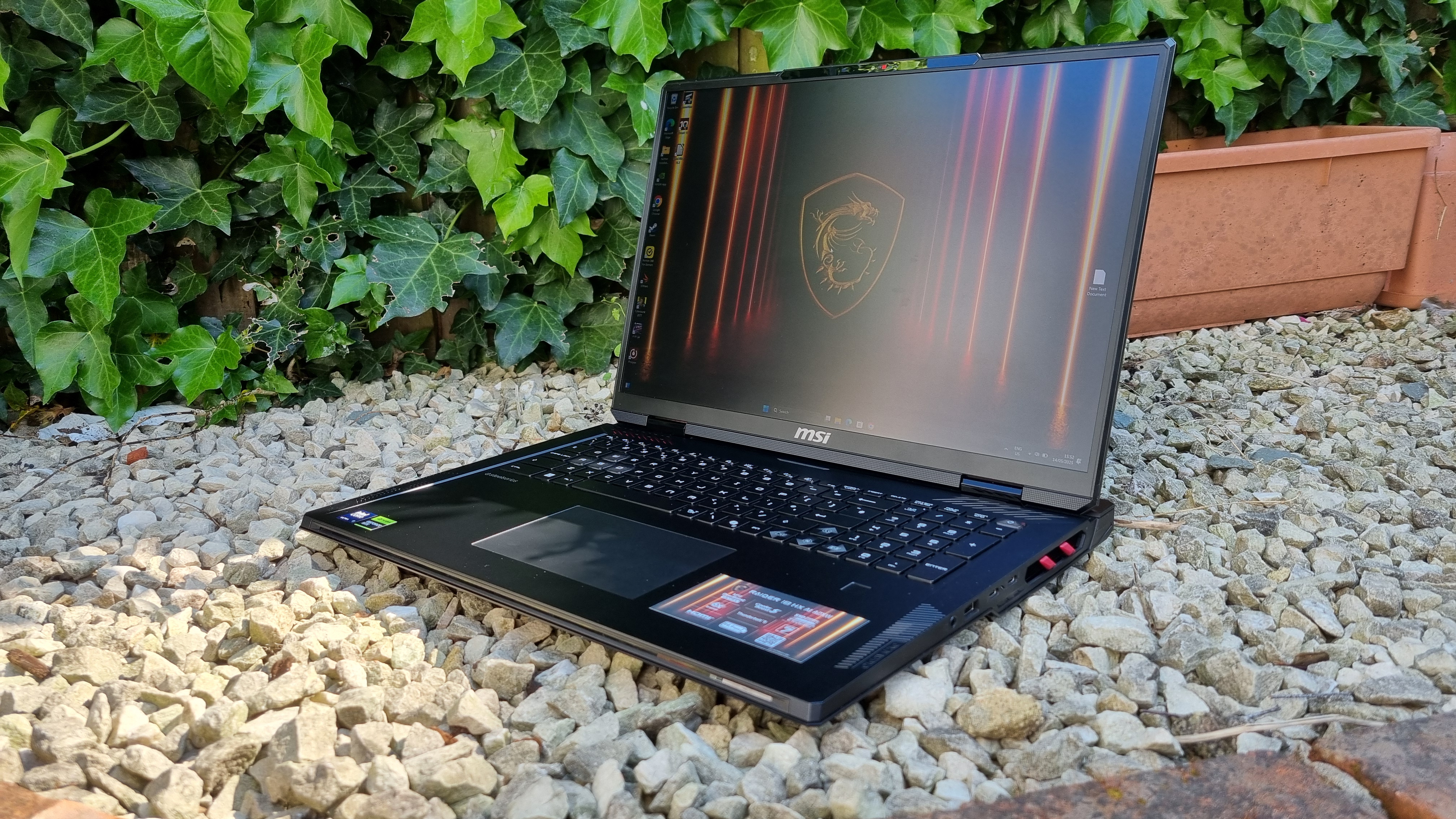Our Verdict
The actual PC is well built, beautifully cable-managed, and runs well, but the choice of GPU and motherboard for a system at this price point is hard to justify. With little aside from an impressive aftermarket offering to hang its high price tag on, it's difficult to recommend this PC against higher spec, lower price gaming PCs—most especially from Corsair itself.
For
- Beautifully built
- Great aftermarket offering
- 7800X3D is still an ace CPU
Against
- Origin price premium
- Weak motherboard choice
- Doesn't stand out...
- ...and almost identical builds are cheaper
PC Gamer's got your back
There's no question that Origin can make a gaming PC. And even if this relatively simple all-Corsair build isn't as head-turning as some of the Origin systems I saw out at CES this year, this is still a beautifully built machine. It's also a system that comes with a price premium, as all Origin PCs do, but this one makes it a bit of a tough machine to recommend.
I guess, for me and from afar, Origin PCs have always had this almost boutique system integrator feel. And yet here I am, with a pretty powerful Origin machine next to me, and another system from Corsair itself in its Vengeance line, and you would be hard pushed to find the difference. If it weren't for the logos and/or marketing lines embossed on the same Corsair 3500X chassis you'd have no hope.
But that shouldn't come as a surprise, given that Origin is part of the Corsair family, along with other brands such as Fanatec, Elgato, and Scuf. Why wouldn't you just use a ton of your parent company's gear to build out your PCs? That's completely understandable given that Corsair does make some of the finest components and chassis on the market, and you can probably get yourself a good deal on them.
It doesn't scream boutique, but it should allow Origin to offer affordable gaming PCs alongside its more extreme builds, such as the gloriously mad Arachnid or Genesis systems. That 'should' being a word hanging here rather pregnant with possibilities.
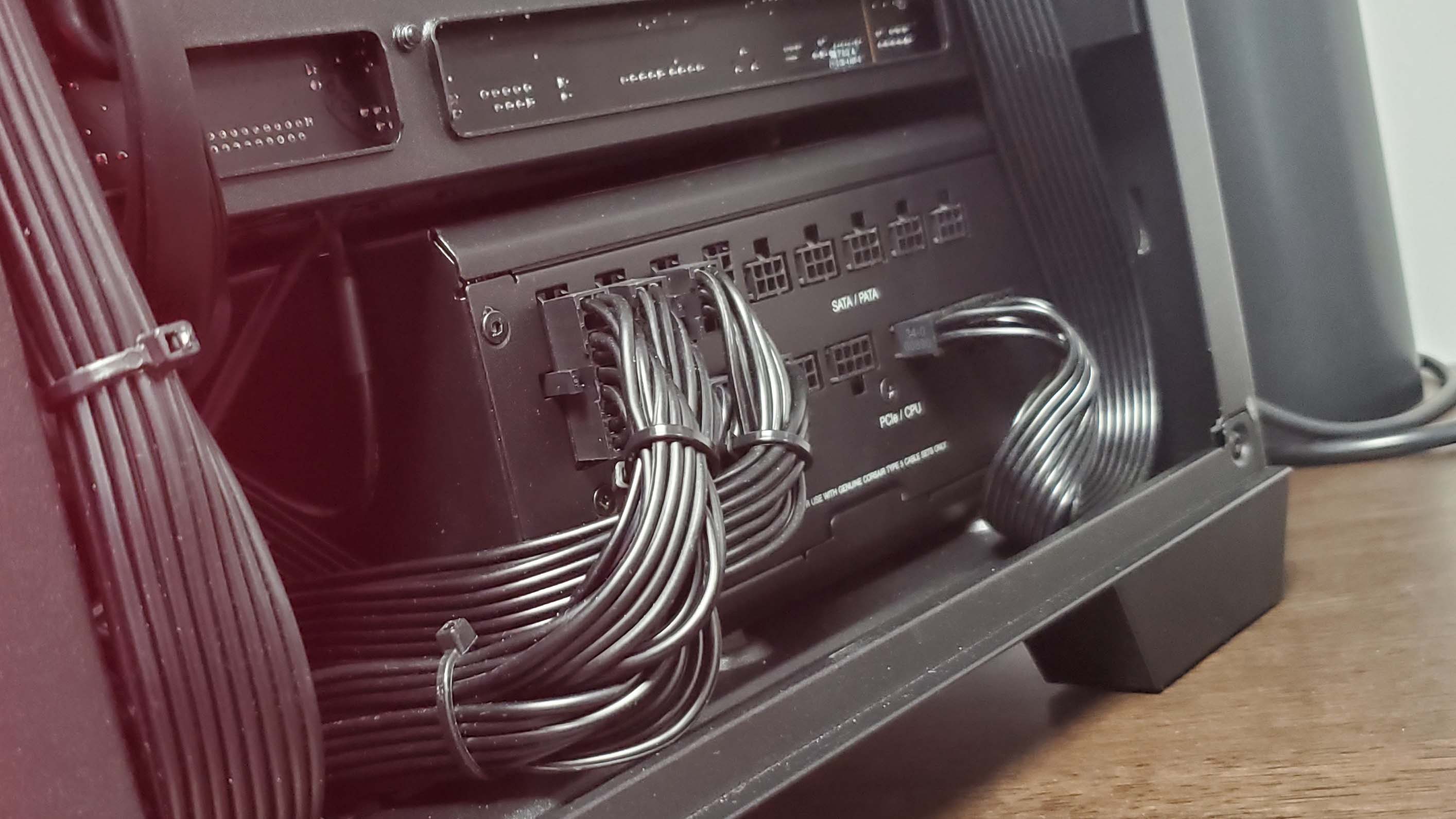
CPU: AMD Ryzen 7 7800X3D
Motherboard: MSI Pro B650-P WiFi
RAM: 32 GB Corsair Dominator DDR5-6000
Cooling: Corsair H150i LCD 360 mm AIO
Fans: 4x QX120s
GPU: AMD Radeon RX 7900 XT
SSD: 2 TB Samsung 990 Pro
PSU: Corsair RM1200x Shift
Price: ~$3,000
Let us start with the specific build we have been playing with recently. It's an older model, of the Neuron lineup, and features a last-gen AMD base with a Ryzen 7 7800X3D and an RX 7900 XT. For me, that's a tick on one side and a bit of a cross on the other. The CPU's still great, even with the newer Ryzen 7 9800X3D having been launched, but the RX 7900 XT is mostly an RTX 4070 Super level card.
And yet the sticker price on this system was somewhere around the $3,000 mark last year. Compare that with one of the cheaper PC brands on the market, Yeyian, and you can still grab a system with the same last-gen CPU and the more powerful RX 7900 XTX for just $2,243. I'll give you that Yeyian doesn't have the premium aesthetic of Origin PCs, nor the comfort or confidence of rock-solid Corsair components, but that's a hell of a price differential for a more powerful system.
It is hard to compare, though, because Origin no longer sells this particular spec, so I am going off older pricing. The closest I can get today is a Ryzen 7 9800X3D build sporting an RX 9070 XT for $3,382.
But it's not just about comparing Origin to notoriously cheap system builders, if you look at the excellent HP Omen 35L you can pick an RTX 5080-based rig (though sadly with an Arrow Lake CPU) for well under $3,000. That's a big brand, and one that's putting a lot of effort into its PC builds now.
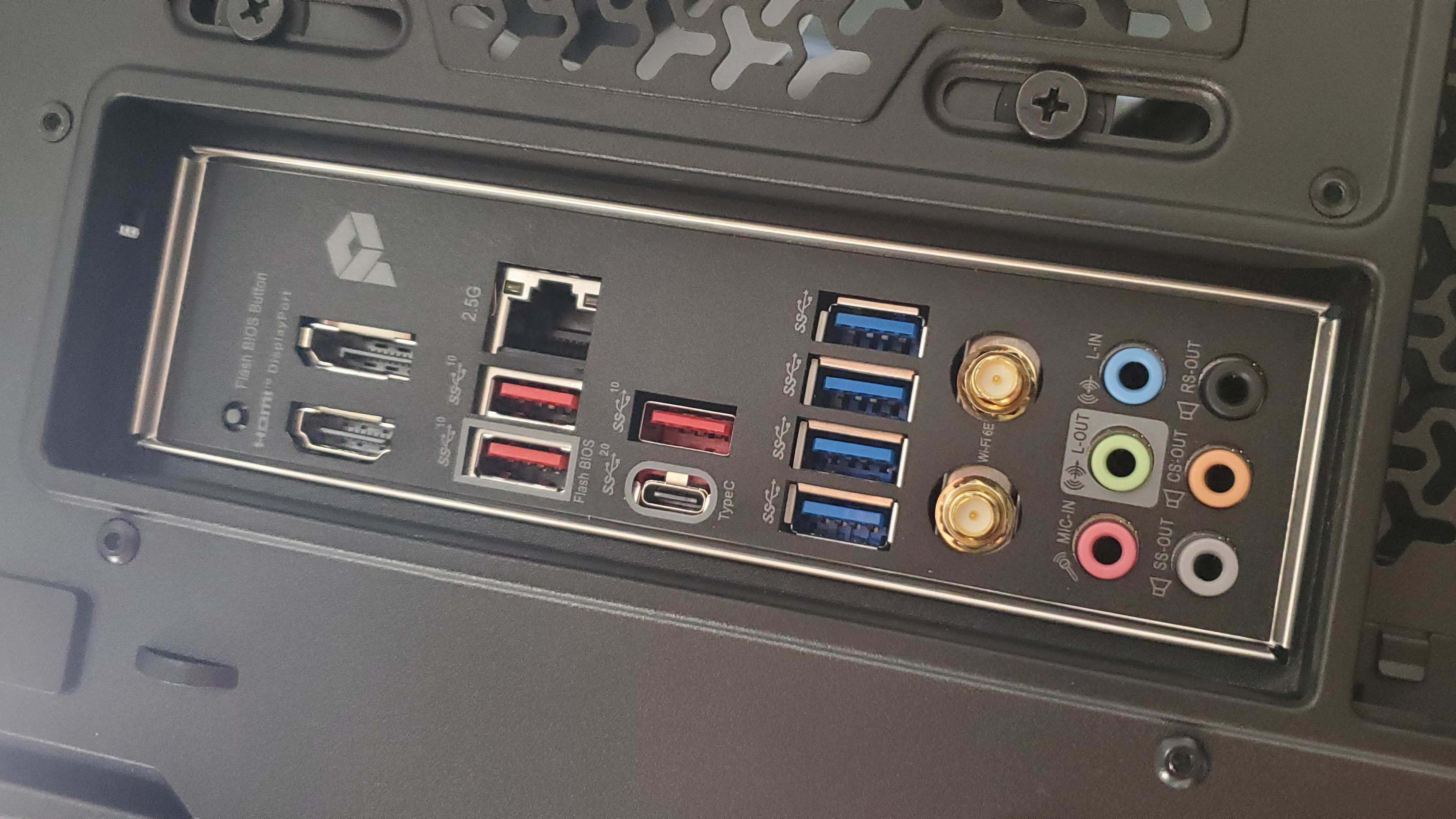

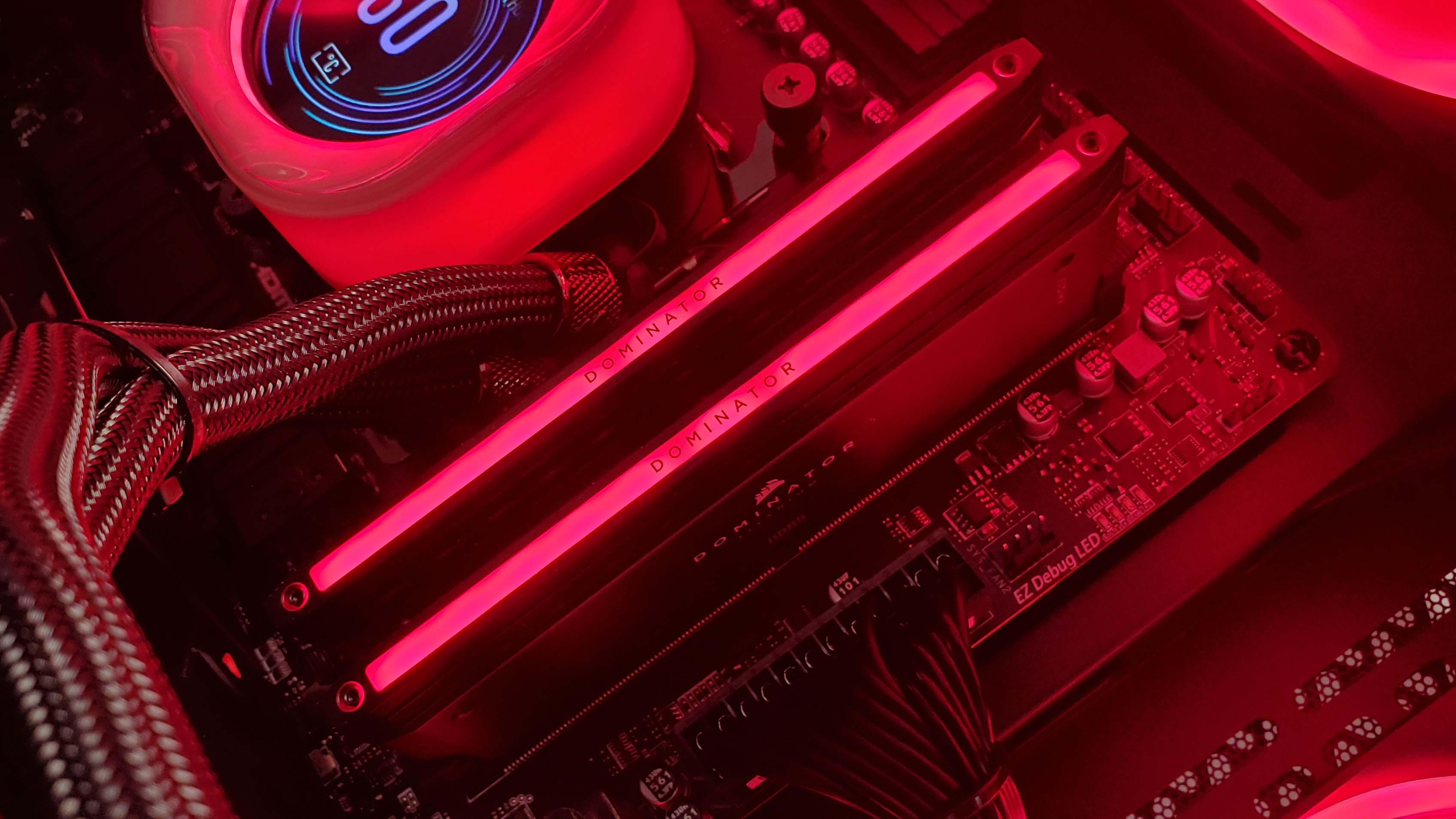
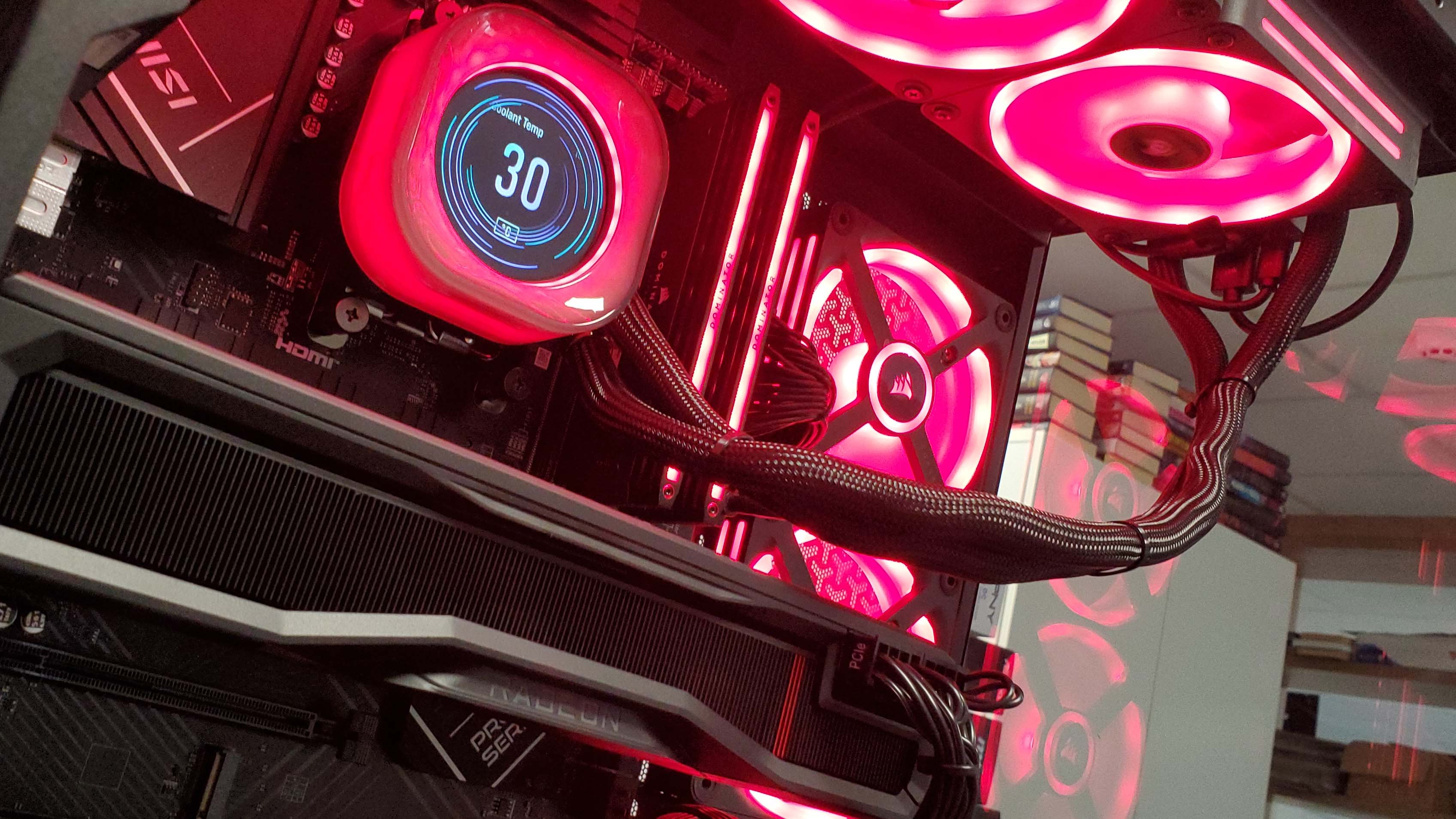
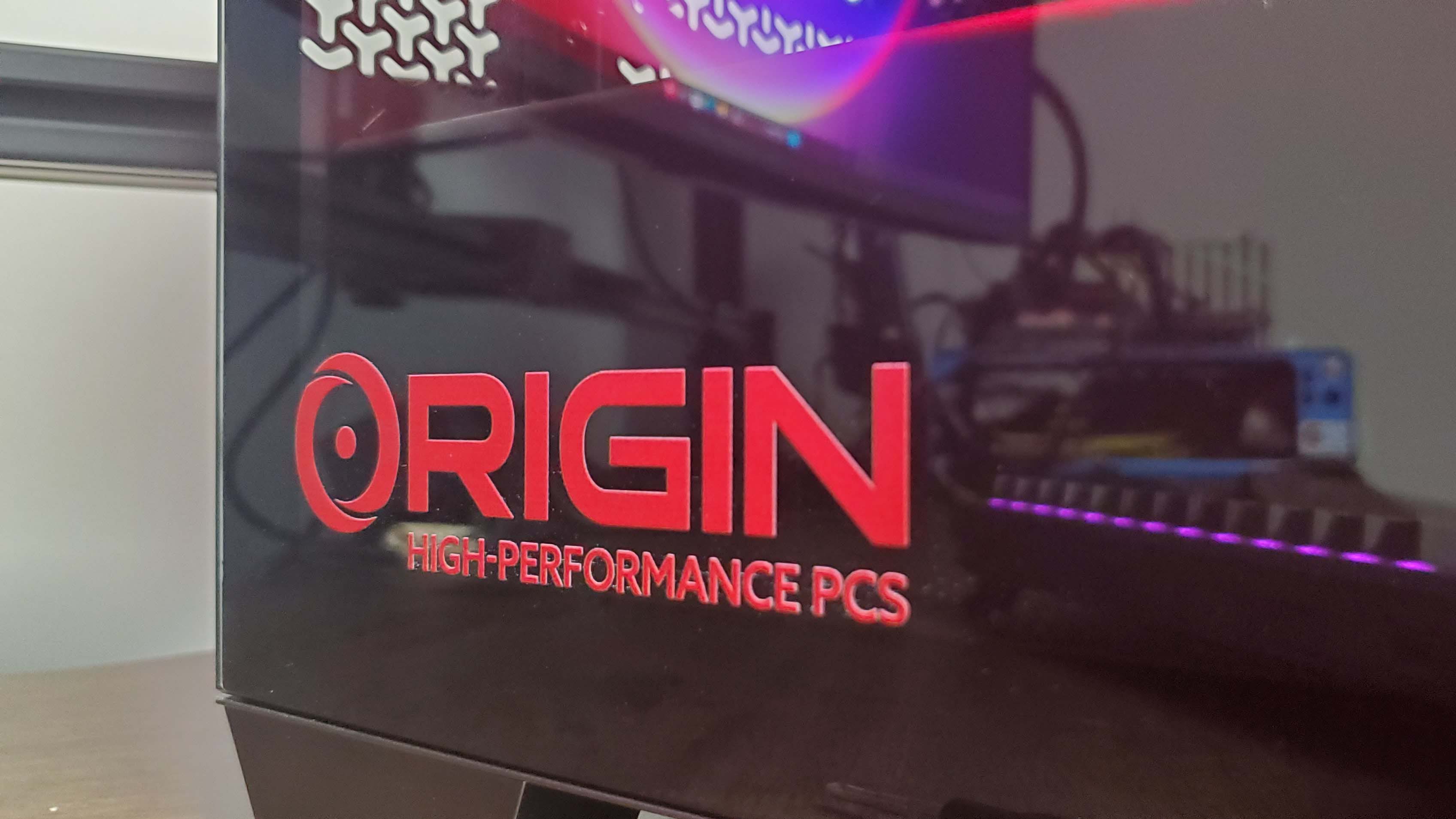
So, what are you getting with your Origin PC? In a word, it's support.
Unfortunately there is still a premium hanging on the standard Origin PCs no matter whether you're picking its standard or more boutique options. That's ably demonstrated by both this older build I've been testing and the newer RTX 50-series systems currently on sale on its site. Picking an RTX 5080 build, for example, you can get an effectively equivalent Corsair Vengeance machine costing some $200 less, with almost entirely the same parts. Then compare that to something like that far more standard Omen 35L and you're looking at closer to a $1,000 difference.
So, what are you getting with your Origin PC? In a word, it's support. You would hope a system builder which has been in regular action since 2009 is going to be able to nail a machine's build quality—and Origin absolutely does—but the aftermarket support is what it's really trying to sell against.
One of the things that stands Origin apart from the competition is its lifetime support, and lifetime labor on upgrades. You want some help with your build long after your parts warranty is up? There will be US-based folk available to listen to your woes. And if the thought of upgrading your motherboard and CPU fills you with dread, or you fear never being able to match the fine detail cabling Origin achieves, then paying to ship your rig back for some free upgrade labor feels like a bit of a win.
Now, our system worked perfectly out of the box, as you would hope, and there are always going to be issues with any builder which ships out a ton of PCs every month, so it's no surprise the Origin PC subreddit does have people with issues. Largely the problems are about struggling to get information about repairs and RMAs, but interestingly a lot of these are directly picked up by moderators on the sub, who help facilitate straightening out the issues with the Origin support team.
That sort of visible support and visible fix gives me a bit of confidence that Origin does work to get its systems sorted. At least, it gives Origin a good way to triage customer complaints—if someone's going to take their customer service issues to reddit, those are going to be the ones you want to prioritize.
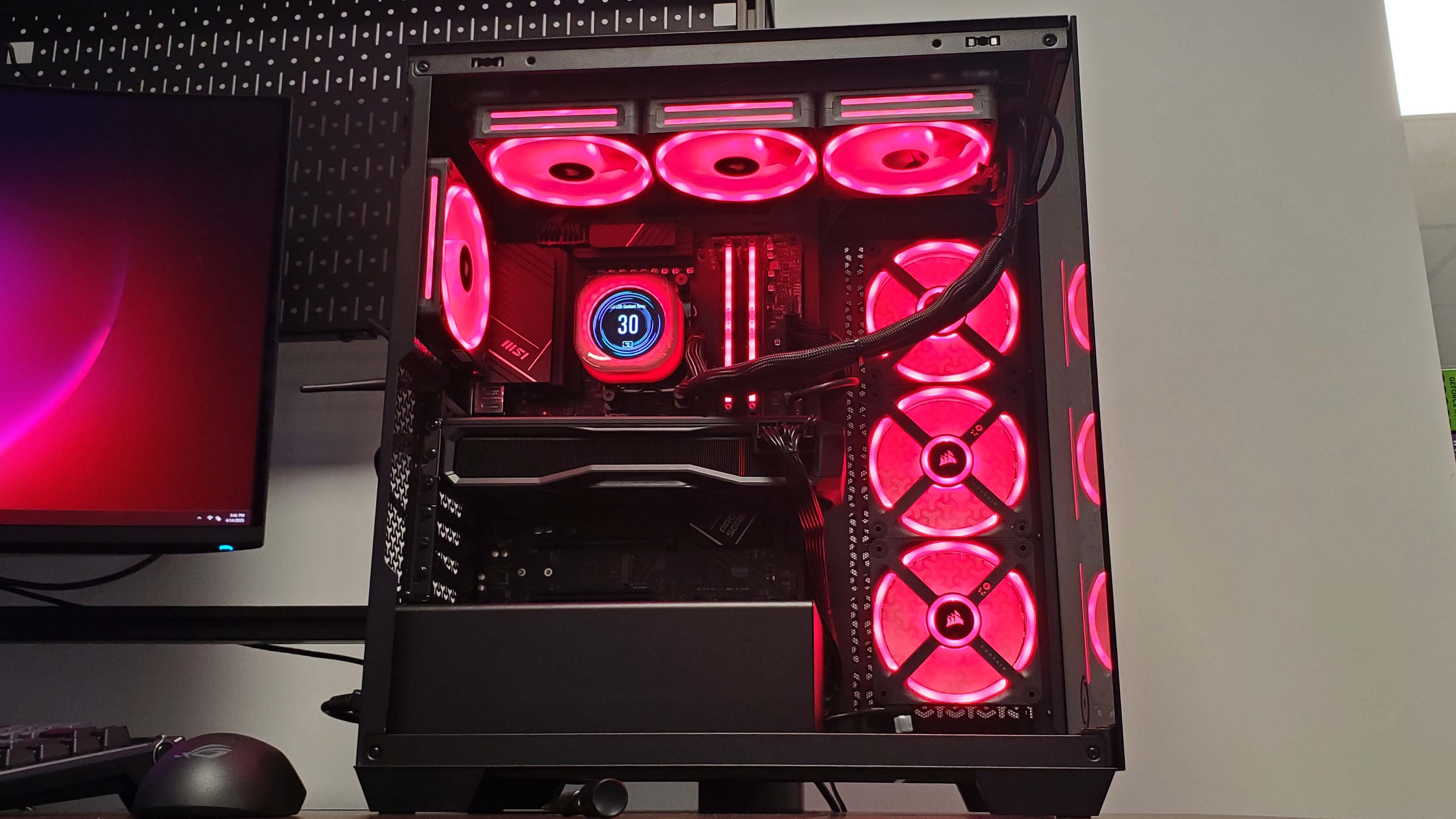
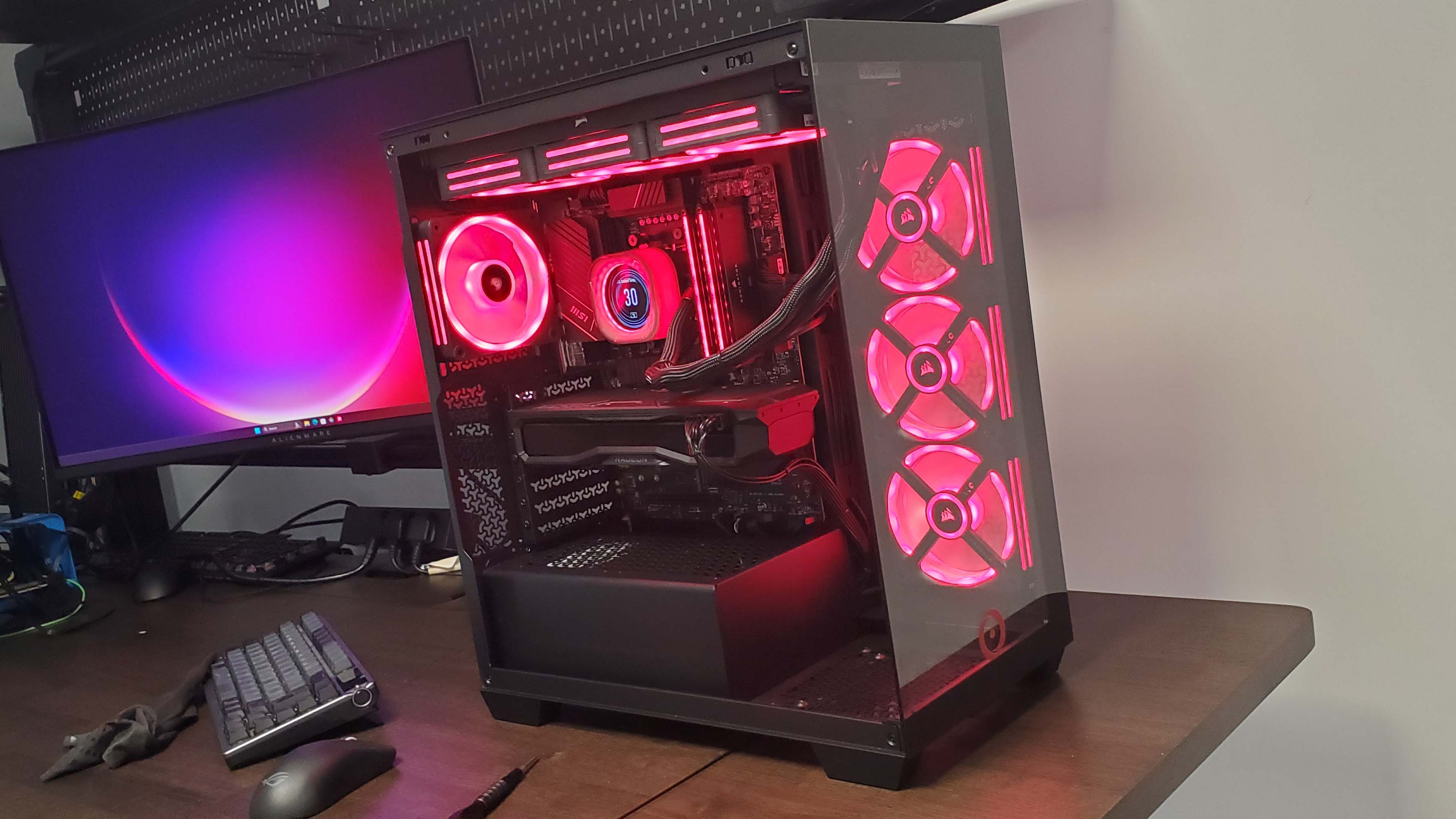
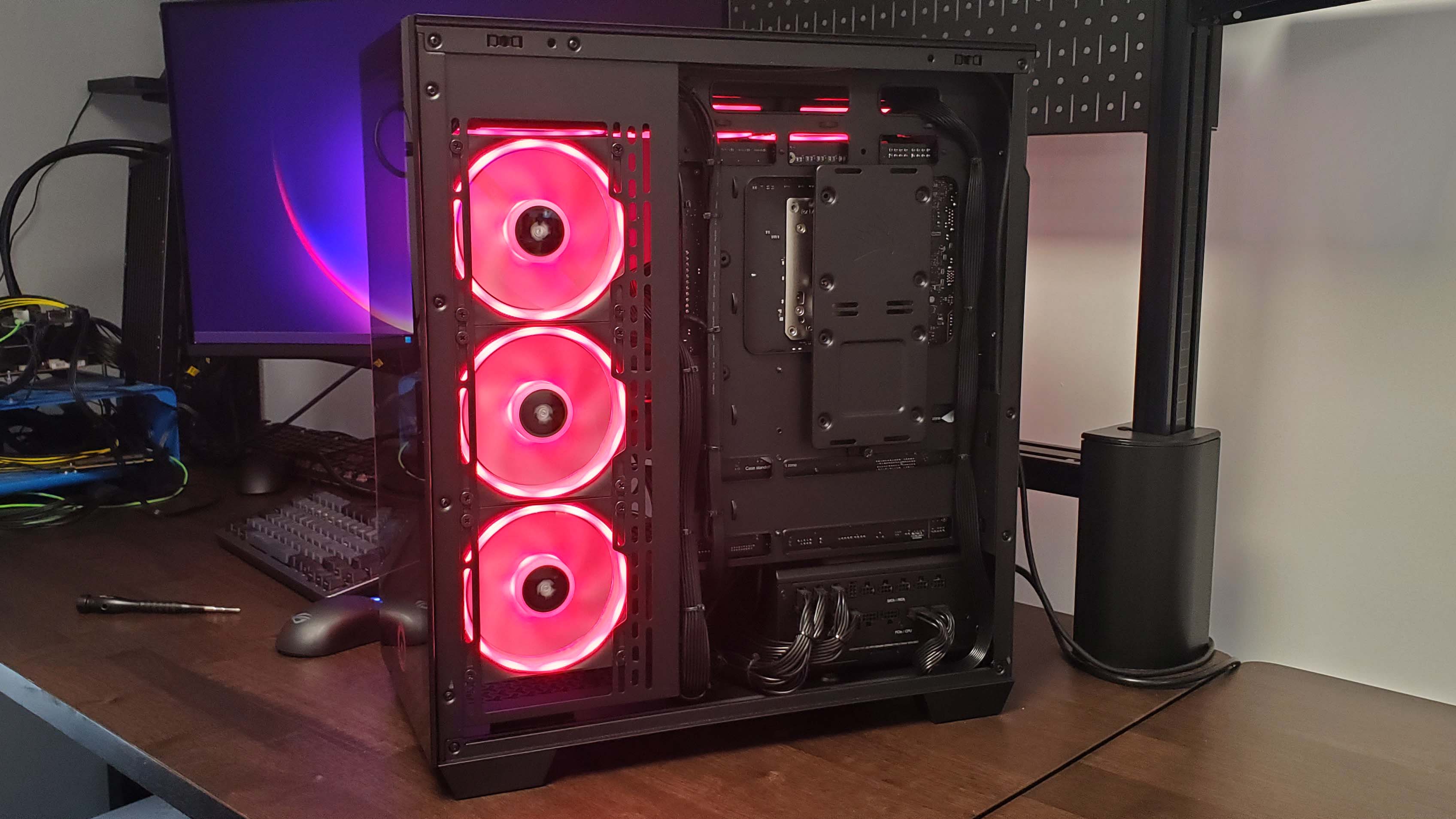
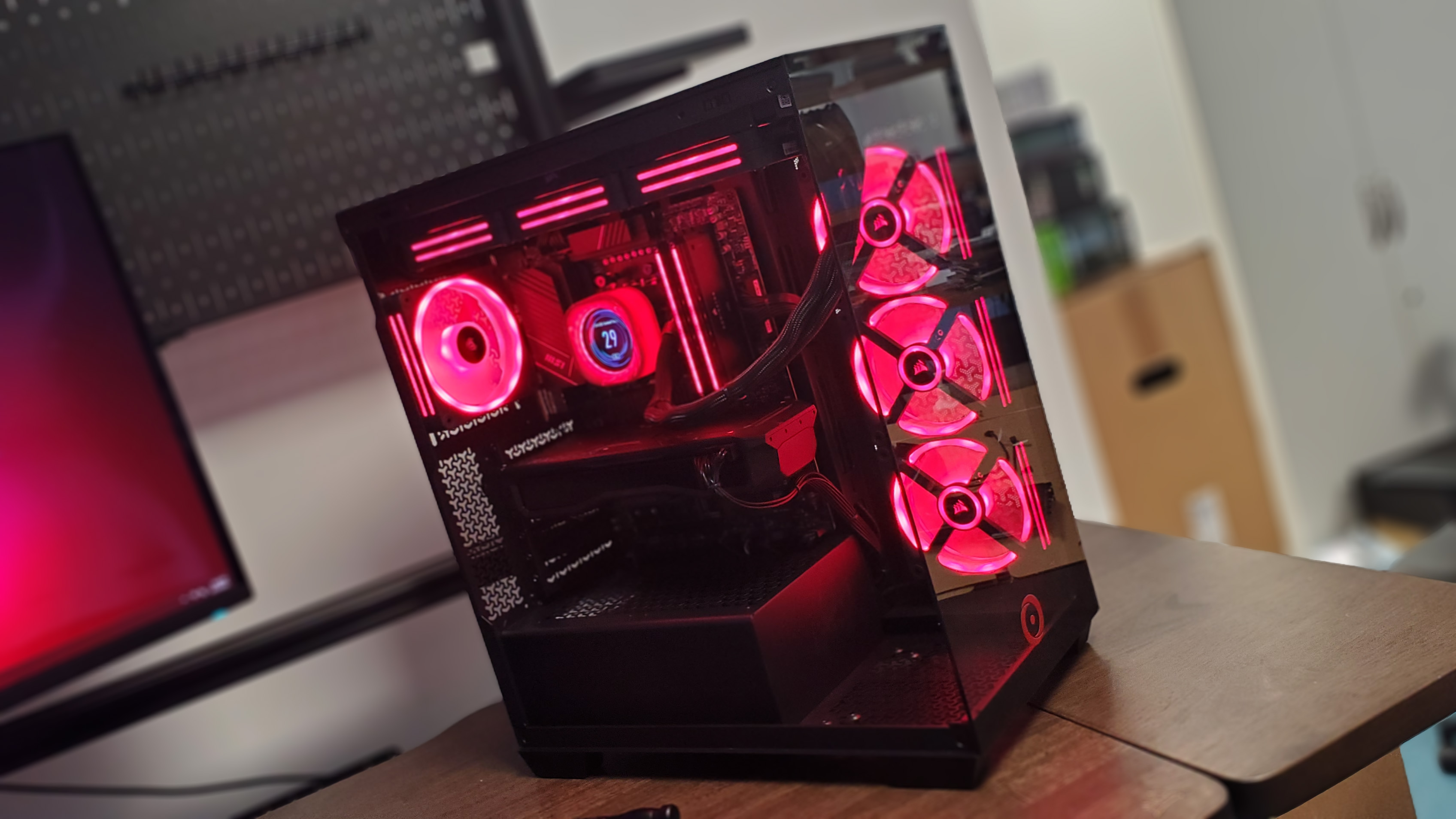
As to this machine, however, that sort of ongoing support probably still wouldn't have me comfortable paying $3,000-odd for something that doesn't quite feel so premium. Even last year an RX 7900 XT wasn't the sort of card you'd want in this price bracket, but that's not the only thing that feels odd. I was almost prepared to say that one thing you got with this Origin build was that it was over-specced outside of the GPU/CPU combo. Laying eyes on a 1200 W Corsair Shift PSU (the cables sprouting out of the side for easy access) was a welcome sight. That's a lot of spare power for future upgrades, and way more than an RX 7900 XT build needs.
But then there's the B650 MSI motherboard. Now, I do think the B650 is a decent chipset for affordable builds, and I'm not saying I want to be able to dump a fistful of M.2 drives into my rig on the regular, but that feels utterly under-specced for a build of this price. And that's only going to be compounded should you want to jam a host of peripherals into its sparse back panel. Sure, there's a Type-C connector on the front/top panel of the Corsair 3500X chassis, which will give you a 10 Gbps connection, but having just a single 20 Gbps Type-C connection on the rear is downright miserly.
You're also getting a single 2.5 G LAN connection and only two M.2 PCIe 4.0 SSD slots. I'm not really sold on PCIe 5.0 for GPUs or SSDs, so I guess missing that out of the spec isn't a huge miss, but it's going to give you pause from a future-proofing point of view.
Interestingly, that's still the default Neuron motherboard for a Ryzen 7 9800X3D / RTX 5080 build at Origin. Y'know, that $3,282 one. You'll need to push well north of that to get yourself onto an X870E board instead.
So, I will admit to feeling a little underwhelmed by my own first Origin experience. The gaming performance at the standard 1440p level is pretty disappointing here for a build that can certainly be considered pricey, and isn't offering anything beyond the competition. Sure, the Ryzen 7 7800X3D proves it's still a mighty capable CPU, but the RX 7900 XT never was that competitive a GPU, which makes it a far less welcome AMD addition to the system.
I have no doubt the company sure can build a PC. The build quality is obvious and the cable management second-to-none. I'm impressed by the promise of lifetime support and labor, and the current two year parts warranty Origin is slapping on its machines right now. But the parts choice and that price premium are still giving me pause. And it's not just that this is an older system either—because I love the Ryzen 7 7800X3D as a gaming CPU even now—it's that some of the parts it's picking don't deliver on the premium the price promises.
✅ You want the Corsair component mix with the Origin aftersales: You are effectively here getting a Vengeance gaming PC but with Origin's two year warranty, lifetime support, and lifetime labor.
❌ You want your boutique builder to feel custom: Origin has identified the problem and is differentiating itself with new, original chassis designs, but this Neuron build with a 3500X chassis feels like a standard gaming PC but with an Origin price premium.
It's that and the fact it's practically identical to the Corsair Vengeance machine sat next to it on our test bench. This is something Origin is absolutely aware of, and has introduced a pair of new chassis to really make Origin stand out from the crowd again, and regain its more boutique builder aesthetic.
Now, the Arachnid might be a leap too far for most of us, but the new Prime chassis available with its Genesis and Millennium rigs is absolutely something that should lend Origin some much needed space between it and its Corsair parent company. And its $99 UV glass prints do look rather stunning, too, and I can't wait to get a look at some of its newest builds.
That space is what's going to make Origin stand apart from the rest of the competition again, because right now this machine doesn't, or at least doesn't do it enough for the price it's charging.
The actual PC is well built, beautifully cable-managed, and runs well, but the choice of GPU and motherboard for a system at this price point is hard to justify. With little aside from an impressive aftermarket offering to hang its high price tag on, it's difficult to recommend this PC against higher spec, lower price gaming PCs—most especially from Corsair itself.

Dave has been gaming since the days of Zaxxon and Lady Bug on the Colecovision, and code books for the Commodore Vic 20 (Death Race 2000!). He built his first gaming PC at the tender age of 16, and finally finished bug-fixing the Cyrix-based system around a year later. When he dropped it out of the window. He first started writing for Official PlayStation Magazine and Xbox World many decades ago, then moved onto PC Format full-time, then PC Gamer, TechRadar, and T3 among others. Now he's back, writing about the nightmarish graphics card market, CPUs with more cores than sense, gaming laptops hotter than the sun, and SSDs more capacious than a Cybertruck.
You must confirm your public display name before commenting
Please logout and then login again, you will then be prompted to enter your display name.

